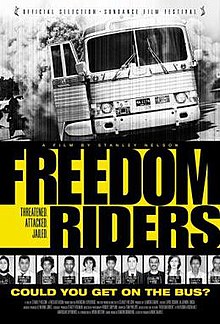
James Leonard Farmer Jr. was an American civil rights activist and leader in the Civil Rights Movement "who pushed for nonviolent protest to dismantle segregation, and served alongside Martin Luther King Jr." He was the initiator and organizer of the first Freedom Ride in 1961, which eventually led to the desegregation of interstate transportation in the United States.
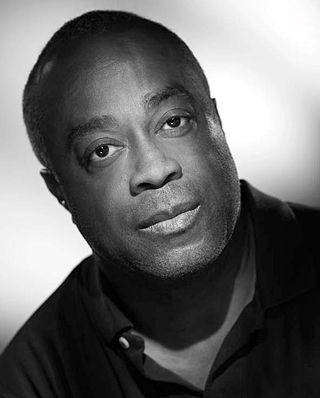
Charles Burnett is an American film director, film producer, writer, editor, actor, photographer, and cinematographer. His most popular films include Killer of Sheep (1978), My Brother's Wedding (1983), To Sleep with Anger (1990), The Glass Shield (1994), and Namibia: The Struggle for Liberation (2007). He has been involved in other types of motion pictures including shorts, documentaries, and a TV series.
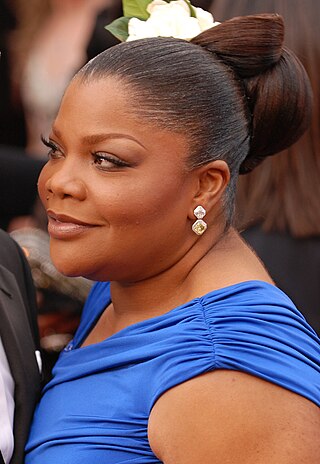
Monique Angela Hicks, known mononymously as Mo'Nique, is an American stand-up comedian and actress. She has received various accolades, including an Academy Award, BAFTA Award, Golden Globe Award, and Screen Actors Guild Award, as well as nominations for a Primetime Emmy Award and a Grammy Award.

Freddie Lee Shuttlesworth was an American minister and civil rights activist who led fights against segregation and other forms of racism, during the civil rights movement. He often worked with Martin Luther King Jr., although they did not always agree on tactics and approaches.
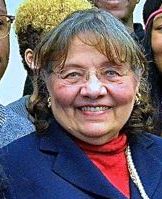
Diane Judith Nash is an American civil rights activist, and a leader and strategist of the student wing of the Civil Rights Movement.
Raymond Ostby Arsenault is an American historian and academic in Florida, United States of America. He has taught at the University of South Florida, St. Petersburg campus since 1980, co-founding the Florida Studies Program. Arsenault is a specialist in the political, social, and environmental history of the American South.
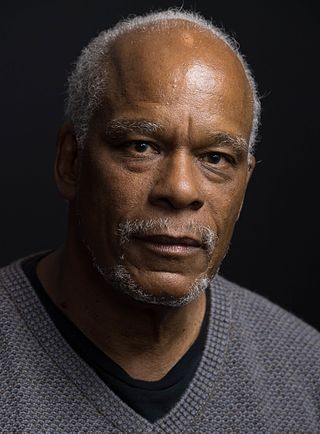
Stanley Earl Nelson Jr. is an American documentary filmmaker and a MacArthur Fellow known as a director, writer and producer of documentaries examining African-American history and experiences. He is a recipient of the 2013 National Humanities Medal from President Obama. He has won three Primetime Emmy Awards.

The Journey of Reconciliation, also called "First Freedom Ride", was a form of nonviolent direct action to challenge state segregation laws on interstate buses in the Southern United States. Bayard Rustin and 18 other men and women were the early organizers of the two-week journey that began on April 9, 1947. The participants started their journey in Washington, D.C., traveled as far south as North Carolina, before returning to Washington, D.C.
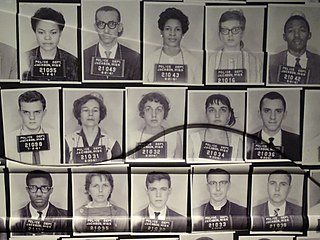
Freedom Riders were civil rights activists who rode interstate buses into the segregated Southern United States in 1961 and subsequent years to challenge the non-enforcement of the United States Supreme Court decisions Morgan v. Virginia (1946) and Boynton v. Virginia (1960), which ruled that segregated public buses were unconstitutional. The Southern states had ignored the rulings and the federal government did nothing to enforce them. The first Freedom Ride left Washington, D.C., on May 4, 1961, and was scheduled to arrive in New Orleans on May 17.
Most Valuable Players is a 2010 documentary film about The Freddy Awards, an annual awards ceremony recognizing outstanding high school musical and theatre theatrical productions in the Lehigh Valley region of eastern Pennsylvania.
Charles Person is an African-American civil rights activist who participated in the 1961 Freedom Rides. He was born and raised in Atlanta, Georgia. Following his 1960 graduation from David Tobias Howard High School, he attended Morehouse College. Person was the youngest Freedom Rider on the original Congress of Racial Equality Freedom Ride. His memoir Buses Are a Comin': Memoir of a Freedom Rider was published by St. Martin's Press in 2021.
James Zwerg is an American retired minister who was involved with the Freedom Riders in the early 1960s.
William E. Harbour was an American civil rights activist who participated in the Freedom Rides. He was one of several youth activists involved in the latter actions, along with John Lewis, William Barbee, Paul Brooks, Charles Butler, Allen Cason, Catherine Burks, and Lucretia Collins.
Edward Norval "Ed" Blankenheim was an American civil rights activist and one of the original 13 Freedom Riders who rode Greyhound buses in 1961 as part of the Civil Rights Movement, in an effort to desegregate transit systems.

America in the King Years is a three-volume history of Martin Luther King Jr. and the Civil Rights Movement by Taylor Branch, which he wrote between 1982 and 2006. The three individual volumes have won a variety of awards, including the 1989 Pulitzer Prize for History.
Henry "Hank" James Thomas is an African American civil rights activist and entrepreneur. Thomas was one of the original 13 Freedom Riders who traveled on Greyhound and Trailways buses through the South in 1961 to protest racial segregation, holding demonstrations at bus stops along the way.
Connie Field is an American film director known for her work in documentaries.

13th is a 2016 American documentary film directed by Ava DuVernay. It explores the prison–industrial complex, and the "intersection of race, justice, and mass incarceration in the United States". The title refers to the Thirteenth Amendment to the United States Constitution, adopted in 1865, which abolished slavery throughout the United States and ended involuntary servitude, except as punishment for convicted criminals. The film argues that this exemption has been used to continue the practice of involuntary servitude in the form of penal labor.

Margaret Winonah Beamer Myers was an American political activist, who, in 1961 at the age of 19, became a Freedom Rider. Freedom Riders were civil rights activists who rode interstate buses into the segregated southern United States in 1961 and following years to challenge the non-enforcement of the United States Supreme Court decisions Irene Morgan v. Commonwealth of Virginia (1946) and Boynton v. Virginia (1960). She was arrested in Jackson, Mississippi and spent almost six months in Mississippi State Penitentiary, better known as Parchman Farm, the oldest prison and the only maximum-security prison for men in the state of Mississippi. Of all the Freedom Riders, white or black, Winonah Beamer served the longest sentence and was the only Freedom Rider who served her full term.
Freedom Riders: 1961 and the Struggle for Racial Justice is a 2006 non-fiction book by Raymond Arsenault, published by Oxford University Press.
